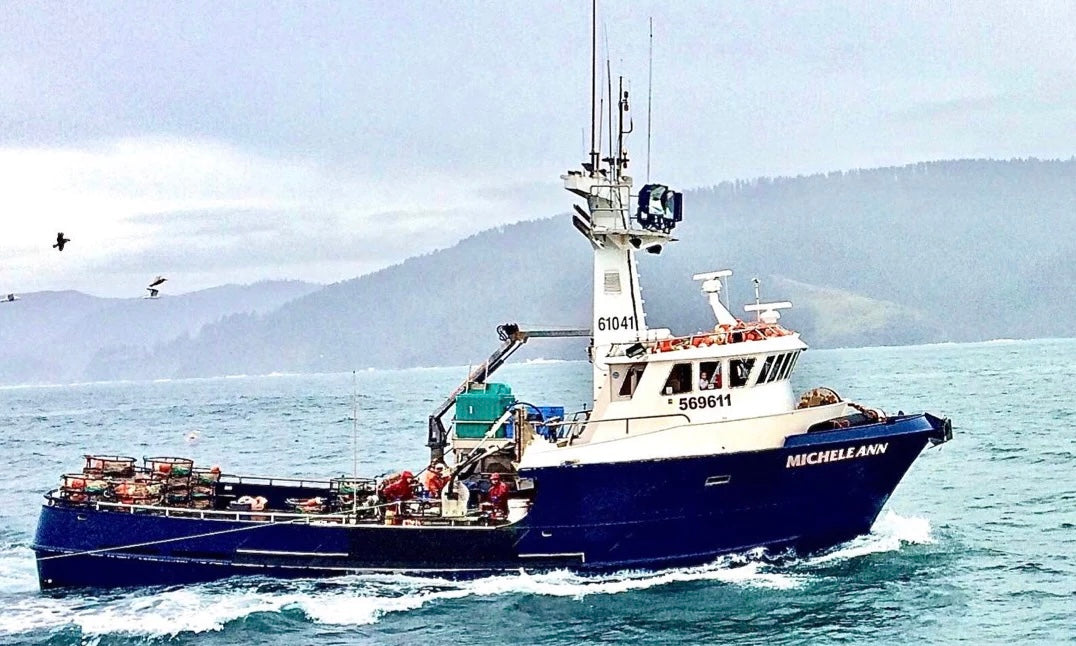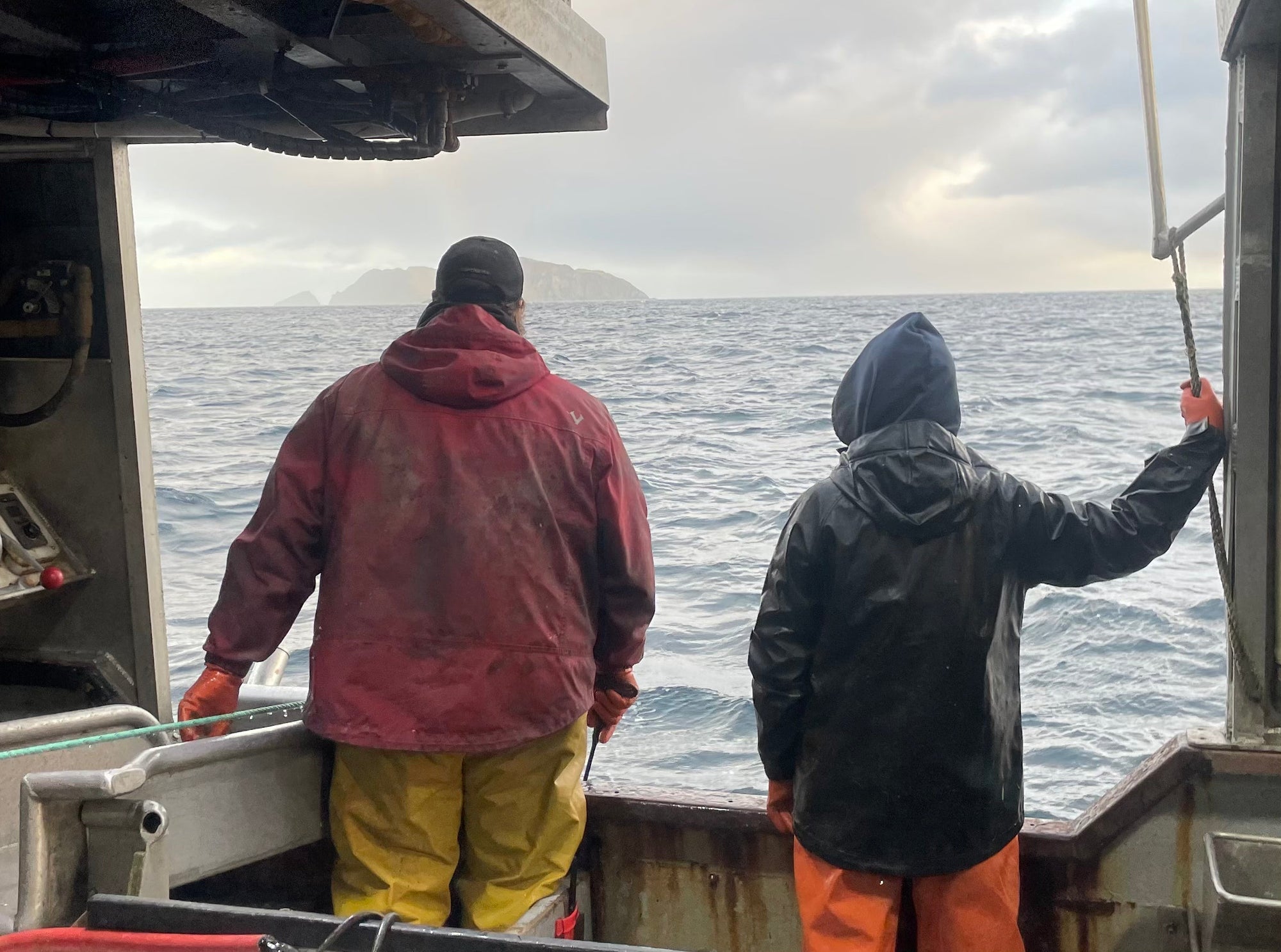Troll, Trawl, Longline, Pots?!
The world of seafood can be hard to navigate. There are many different terms with very different meanings. We say that we are a sustainable seafood company, but what exactly does that mean?
> Our seafood is wild caught in Alaska and the Pacific Ocean, and can be traced back to it's source & vessel
> Our passion is supporting our local communities and our local fishing families we've been buying seafood from for over 50 years
> As you'll learn below, our fishermen use sustainable fishing methods, protecting our oceans and our ecosystems
"Troll Caught"
Premier Catch Sockeye and King Salmon, Albacore Tuna
"Troll" is a term that means "to pull through the water". There is a pole, a weighted line, and the boat moves slowly through the water. Bait can be used to specifically target the species, minimizing "by catch" (fish that you weren't intending to catch).
"Trawl Caught"
No Premier Catch Products are trawl caught
This is a big no-no. None of our products are trawl caught. Trawling involves dragging a tunnel shaped net through the water a varying depths and seeing what you catch. This can lead to a lot of by-catch, and when these nets are drug near the bottom of the ocean, it can destroy the environmental habitat.
"Longline Fishing"
Premier Catch Wild Sablefish and Wild Pacific Halibut
Long-lining involves fishing with one very long fishing line that can extend, either near the ocean surface (pelagic long-lining) or just off the ocean floor (bottom long-lining), for up to 50 miles. Individual lines with hooks dangle from the central line. Special hooks are used to target species and allow and bycatch to be released.
"Pot Fishing"
Premier Catch Wild Sablefish, Alaskan Red King Crab and Dungeness Crab
You may have used crab pots yourself if you've ever gone crabbing off the Washington and Oregon Coasts! Pots and traps are wire cages that allow species to enter the enclosure but make escape extremely difficult or impossible. The size and shape of the pot and entrances allows fishermen to target specific species and avoid bycatch. Bait is secured inside the trap, and then the fishermen return to retrieve the catch and re-bait the traps.


